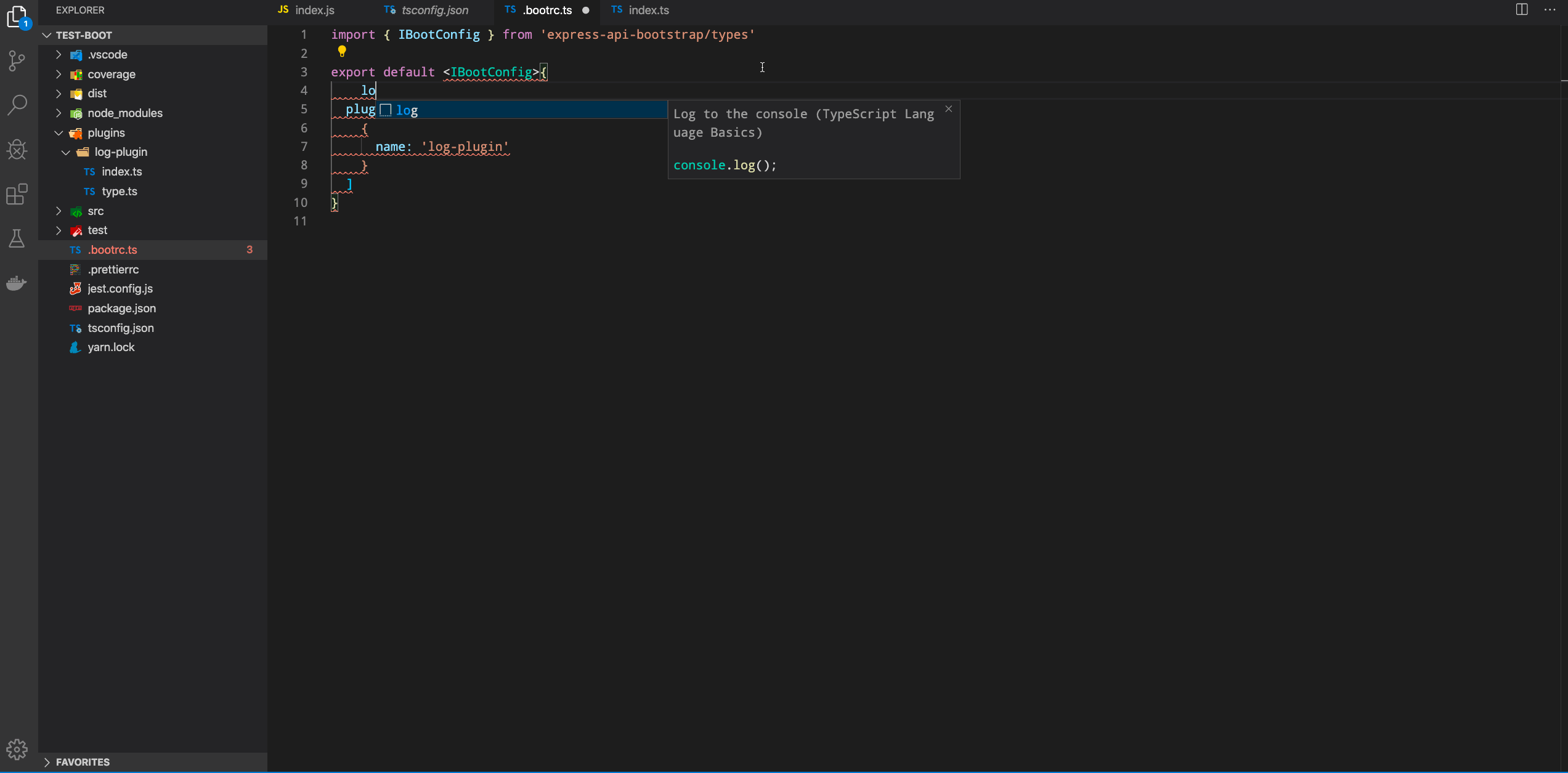# Develop Plugin
Let's try to create a log plugin as tutorial.
# Initialize Plugin
Create plugin for your repo
create a folder under <rootDir>/plugins:
# ensure <rootDir>/plugins exist
mkdir plugins
# create folder for your plugin
mkdir plugins/log-plugin
# create plugin entry
touch plugins/log-plugin/index.ts
# create plugin type
touch plugins/log-plugin/type.ts
Note that, type.ts will be used in .bootrc.ts if your plugin provides specific configuration.
# Write Plugin Function
type.ts is used to define the specific configuration required in your plugin.
Open plugins/log-plugin/type.ts, with below code boilerplate:
import { HttpRequest } from 'express-api-bootstrap'
export interface IPluginType {
/**
* Log configuration.
*
* This plugin is enable by default
*/
log?: ILogConfig | false
}
interface ILogConfig {
/**
* Log formatter
*/
logFormatter: (req: HttpRequest) => string
}
Open plugins/log-plugin/index.ts, with below code boilerplate:
import { Express, PluginOrderEnum, IPluginFactory, HttpRequest, HttpResponse } from 'express-api-bootstrap'
import { IPluginType } from './type'
export default <IPluginFactory>(opts => {
return {
// define what lifecycle you want your plugin to be executed
order: PluginOrderEnum.BEFORE_API_INIT,
// this func is important, by which the user can use this plugin without any config
configHandler(config: IPluginType) {
const opts = {
logFormatter: (req: HttpRequest) => {
return `INFO: ${req.ip} => ${req.path} => query:${JSON.stringify(req.query)} => body:${JSON.stringify(
req.body
)}`
}
}
if (config.log === undefined || config.log === null) {
return {
log: opts
}
}
if (config.log === false) {
return {
log: false
}
}
if (config.log.logFormatter) {
opts.logFormatter = config.log.logFormatter
}
return {
log: opts
}
},
// this func is the core part of your plugin
pluginHandler(app: Express, config: IPluginType) {
app.use((req: HttpRequest, res: HttpResponse, next: Function) => {
if (config.log === false) {
return next()
}
// i choose console here, you can use any log system you prefered
console.log(config.log.logFormatter(req))
next()
})
}
}
})
Add this plugin in your .bootrc.ts, as below:
import { IBootConfig } from 'express-api-bootstrap/types'
export default <IBootConfig>{
plugins: [
{ name: 'log-plugin' }
]
}
And at last, if you want to use this plugin with configuration intelliSense, you need to:
# re-generate express-api-bootstrap/types
npx boot init
express-api-bootstrapwill scan plugins defined in.bootrc.tsfromnode_modules/and<rootDir>/Plugins/, and re-generate proper ts type for you
After that, you are going to get intelliSense like:

← Plugin